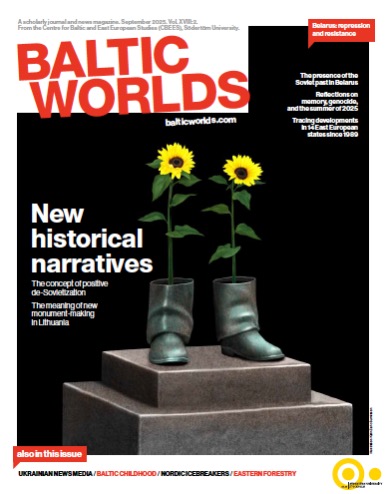Robert Chandler: “any successful translation of poetry is a small miracle”
With a career spanning more than 20 years, Robert Chandler is one of the best known and most prolific translators of Russian into English. He has translated classic authors such as Pushkin and Leskov, as well as more contemporary writers like Grossman, and his translations of Platonov have won prizes. He recently completed a translation of Velimir Khlebnikov’s poem about the Volga famine.

 Issue 2025, 2:
Issue 2025, 2: